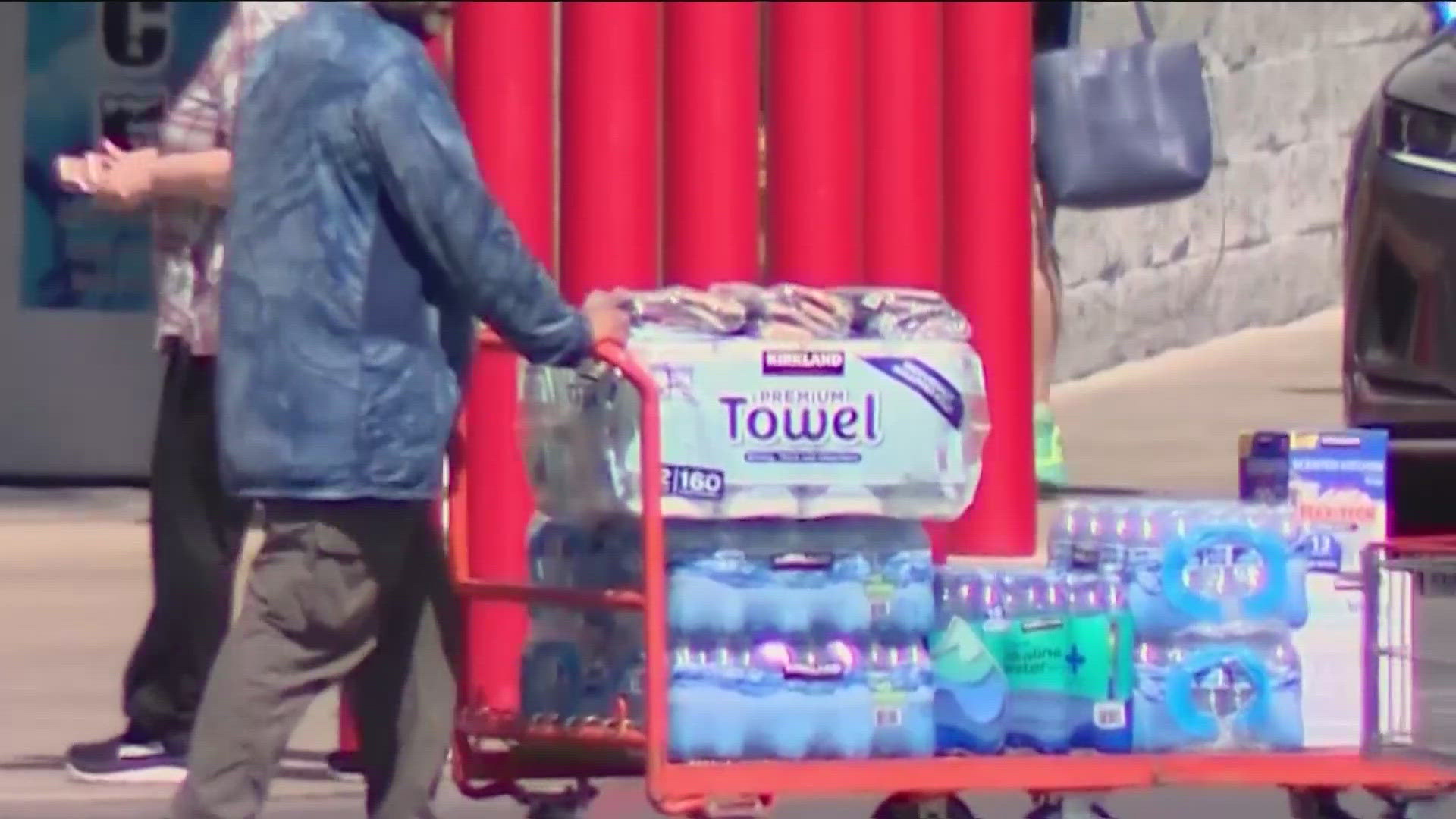TOLEDO, Ohio — UPDATE: The Associated Press reported Thursday that the union representing 45,000 striking U.S. dockworkers at East and Gulf coast ports has reached a deal to suspend their strike until Jan. 15 to provide time to negotiate a new contract.
The original story is below:
Stores across the map are completely wiped out of toilet paper and paper towels as people rush to stock up on necessities in fear of impacts from the ongoing port strike.
"I think people are stocking up because they feel like there's not going to be supplies," Terry Wrozek, a resident shopping at a local grocery store said.
Wrozek said while she was stocked up on toilet paper, she came to the store hoping to get more.
"I got some napkins instead," Wrozek said as the store was out of toilet paper.
And others with no choice but to search for it at other stores.
"It's a little discouraging," Susan Martz, another local shopper said. "I mean going through it from COVID and now 2024 not thinking that that would happen again."
While people fear this situation is going to make times similar to how things were during the COVID-19 pandemic, The University of Toledo's Paul Hong, a professor of operations management, said it is different because this is more controllable than a widespread sickness.
"This strike is a much smaller scale so we need to keep that in mind, that's number one," Hong said. "Number two, a lot of companies actually have been warned in advance so there's weeks and even months safety stocks inventory there."
He said there is no need for people to engage in panic buying as that only creates more problems.
"The right way to deal with this is to be mindful of your needs. So do whatever you need to portray living more but at the same time consider others," Hong said.
The Toledo-Lucas County Port Authority said in a statement to WTOL 11 that the labor strike has no immediate impact on the Port of Toledo.
Here is the full statement:
The current labor strike at the East Coast and Gulf Coast ports will have no immediate impact on the Port of Toledo. The labor contract that governs some of the terminals at Great Lakes ports that are staffed by ILA members is separate from the ILA contract that governs East Coast and Gulf Coast ports. The Toledo-Lucas County Port Authority is not a party to any labor contracts at Toledo’s marine terminals. Labor contracts are between the employers (terminal operators) and their respective labor unions. Because the impacted East Coast and Gulf Coast ports primarily handle containerized goods, and the Port of Toledo does not currently have a container service, we do not believe there will be any cargo diversions to Toledo. The Port of Toledo consists of thirteen marine terminals that handle a diverse variety of bulk and break-bulk commodities, liquid bulk, project cargo, and grain.

